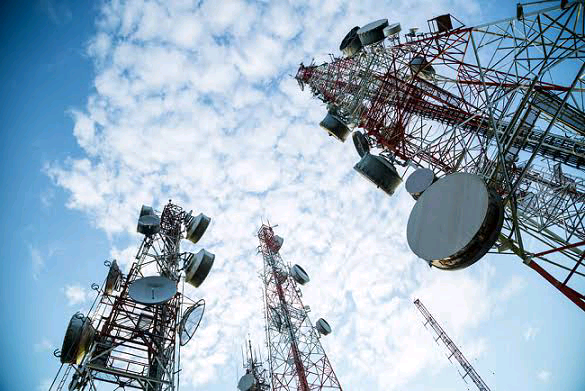The Nigeria Labour Congress (NLC), initially poised to launch a nationwide protest against a 50% hike in telecom tariffs, suspended its action following a meeting with government representatives. The proposed protest, scheduled for Tuesday, was halted after discussions at the Office of the Secretary to the Government of the Federation in Abuja. The NLC’s primary grievance stemmed from the Nigerian Communications Commission’s (NCC) approval of the tariff increase, which the union deemed insensitive and unduly burdensome for Nigerian consumers already grappling with economic hardship. The NCC, however, justified the hike, citing escalating operational costs attributable to inflation, foreign exchange volatility, and rising energy prices, arguing that the adjustment was necessary to ensure the financial viability of the telecom sector.
The NLC had vehemently opposed the tariff increase, demanding a reduction to 5% and threatening a nationwide boycott of telecommunication services. The union’s president, Joe Ajaero, reiterated the demand for a substantial reduction, characterizing the NCC’s decision as a direct assault on Nigerian workers and the general public. Despite the NLC’s pressure, telecom operators stood firm, maintaining that the tariff adjustment was crucial for sustaining service quality and supporting network expansion amid challenging economic realities. The Chairman of the Association of Licensed Telecommunications Operators of Nigeria (ALTON), Gbenga Adebayo, emphasized the necessity of the increase for the survival of telecom operations.
In preparation for the protest, the NLC had mobilized various sectors, including electricity and aviation workers, as well as civil society groups. However, the meeting with government officials resulted in a breakthrough, with the government agreeing to establish a broader committee to review the tariff structure comprehensively. This committee, comprising five representatives from both the government and the NLC, is tasked with submitting its findings within two weeks. The NLC’s subsequent actions, including potential protests, boycotts, or service withdrawals, hinge on the outcome of the committee’s deliberations.
While the planned symbolic submission of protest letters was put on hold, the NLC underscored its continued concern regarding other pressing economic issues, namely high electricity tariffs and burdensome taxes affecting workers. These unresolved issues, according to the NLC president, demand immediate attention and resolution. The Minister of Information and National Orientation, Mohammed Idris, clarified that the NCC’s decision to raise tariffs was based on a study, which the NLC agreed to examine as part of the committee’s review process. He confirmed the formation of the joint committee and expressed optimism about reaching a mutually agreeable resolution within two weeks, thereby averting the threatened protest.
The National Civil Society Council of Nigeria (NCSCN), initially a supporter of the NLC’s protest, also suspended its planned actions after a meeting with the NCC. The council, representing over 600 affiliate organizations, had initially condemned the tariff hike and intended to stage a protest at the NCC headquarters and the National Assembly. However, following a detailed presentation by the NCC, which included economic assessments and operational data, the NCSCN reconsidered its stance. To ensure an objective evaluation, the council formed a technical committee to conduct a forensic analysis of telecom service providers’ operational costs, financial statements, and annual profit margins.
The NCSCN’s subsequent investigation revealed that telecom operators had not increased tariffs since 2013 despite enduring inflationary pressures and challenging economic conditions. The committee’s findings highlighted the significant impact of rising electricity and diesel costs on network operations, providing further context for the NCC’s decision to approve the tariff increase. This independent assessment by the NCSCN, coupled with the government’s commitment to a joint review, contributed to the de-escalation of the situation and the suspension of the planned protests. The two-week timeframe for the committee’s review now holds the key to a final resolution on the contentious telecom tariff issue.














